James Morrow: Activists do themselves a disservice by scoring political points
The move to make things better for women is compromised by advocates more concerned with scoring points against the government than concrete improvement, writes James Morrow.
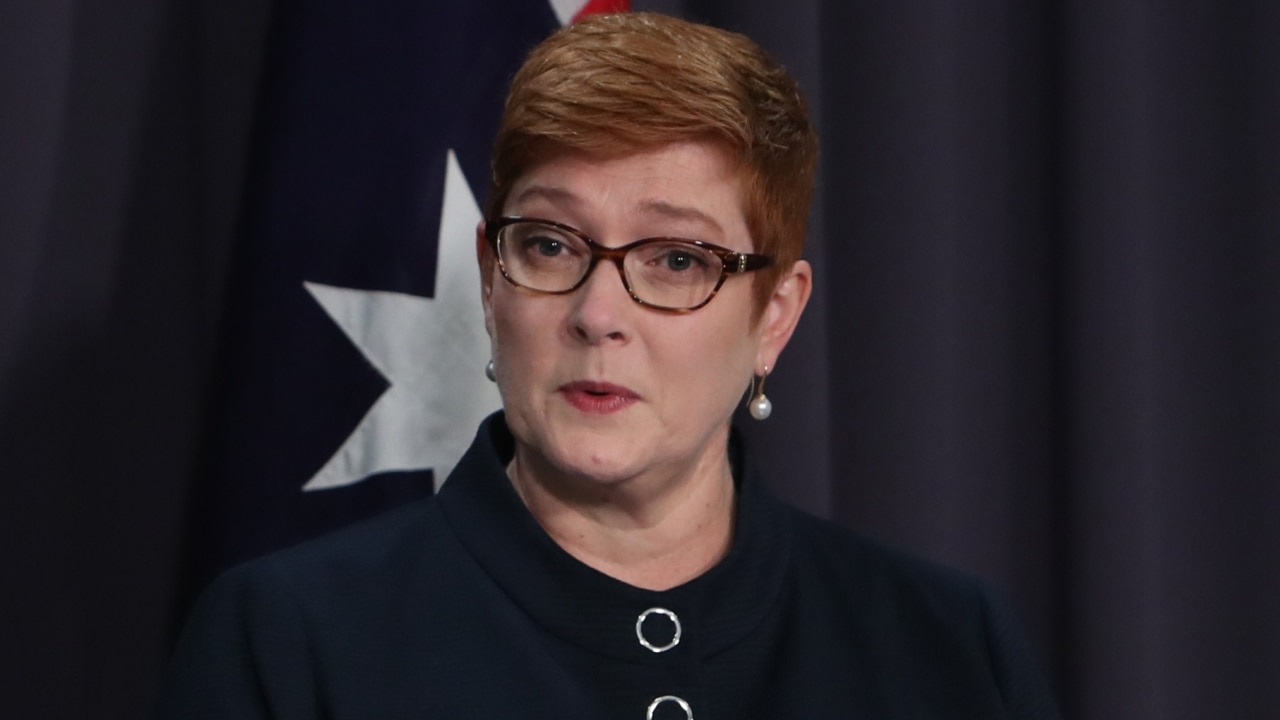
Opinion
Don't miss out on the headlines from Opinion. Followed categories will be added to My News.
This is, we are told, the moment for change. The only problem is, after a month of discussion and demonstrations, many of us are none the wiser about what that “change” should actually look like.
Now, no one has any doubt that women deal with a range of obstacles and bad behaviour in Parliament House — as indeed they do in many other parts of the workforce.
But despite several weeks where Brittany Higgins, Christian Porter and now a national “March4Justice” have dominated the headlines, there is still precious little in the way of actual practical suggestions of what that change should look like — and far too much politics getting in the way.
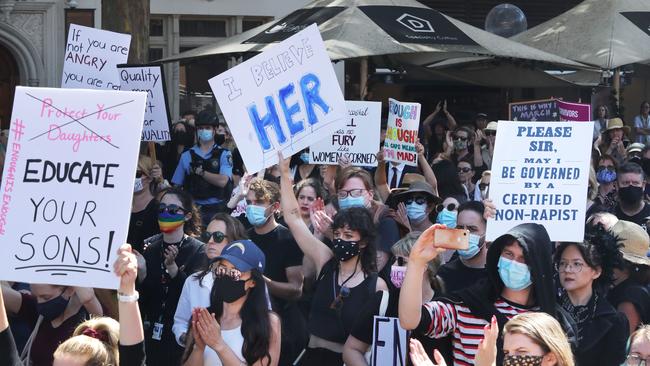
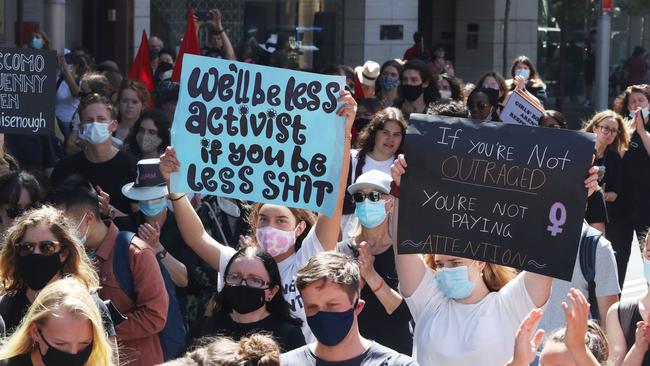
Because the fact is, if the country spends several weeks of news cycles discussing these issues but doesn’t wind up with a plan to fix them, things will go nowhere, and we’ll all be talking about them again in three or five years’ time.
And much of the fault of this, sadly, lies with those who are claiming to be doing the most to raise awareness.
Take the gotcha games the March4Justice organisers played with the Prime Minister on the morning of the march.
Offered a chance to meet with Mr Morrison in private to air their concerns, the march’s organisers refused, instead insisting he face the crowd and give them a photo-op of a prime minister being heckled and jeered.
Yet which of the two options might have done something to achieve real outcomes?
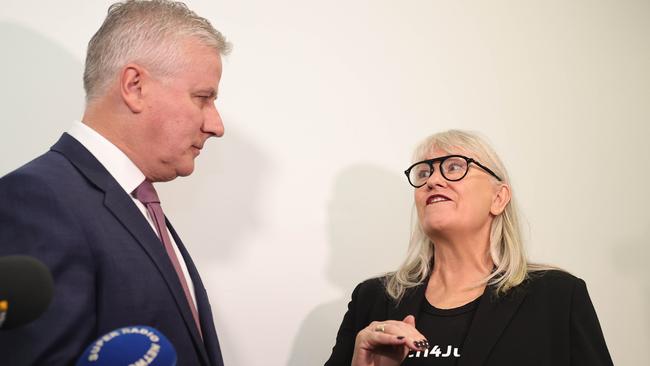
The impression that the whole thing was a stich up wasn’t helped by old tweets of Janine Hendry, who organised the march, complaining about Morrison and using the left’s favourite sobriquet, #scottyfrommarketing.
“I feel really embarrassed that Scott Morrison represents Australia, represents me. He clearly has no understanding of diplomacy let alone able to demonstrate any degree of empathy for a culture other than ‘The Shire’... I feel humiliated that he is put forth as ‘our best’”, reads one of Ms Hendry’s tweets from last November, leaving many Australians wondering if this was about helping women or hurting Morrison.
The same goes with the eagerness with which online critics have gleefully turned every clunky utterance of Scott Morrison into Exhibit A for the prosecution case that the Coalition is hopelessly sexist, out of touch, retrograde, committed to inaction, and defiantly protective of sex abusers as any government since Caligula.
Contrast this with the relatively light focus that stories told by female Labor staffers detailed to news.com.au of enduring everything from forced kisses to sex while drunk and with dubious consent have received in other segments of the media and online and a pattern starts to emerge.
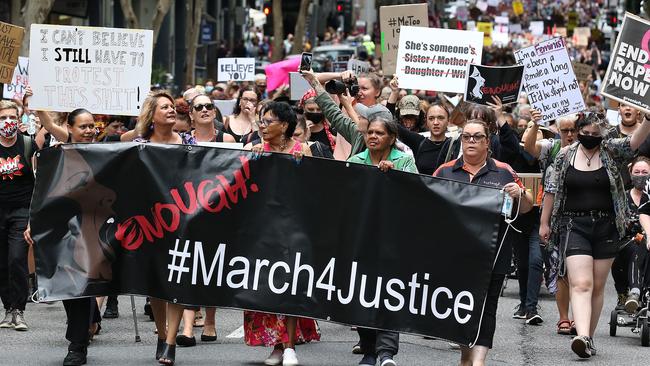
And that’s before considering the way in which historic sex allegations against Christian Porter — now the subject of a defamation action against the ABC — have played out in what has appeared to be more of a concerted campaign to bring down a Liberal cabinet minister than to seek justice for a deceased potential victim.
But making a dopily expressed fit of empathy (“Jenny and I spoke last night …”) a hanging offence won’t stop one assault; if anything, it will make people, men especially, more reluctant to talk about these issues, lest they get shouted down.
In the same way, simply ramping up the teaching of consent in schools is fine insofar as it goes. But reducing coupling to a yes/no question doesn’t seem like the best way to prevent adolescent hurt either.
The partisan politicisation of the issues means that the very people who should be hearing the message of women won’t.
A walk around the demonstrators who came to parliament house on Monday likewise saw plenty of anger, but very little again in the way of solutions.
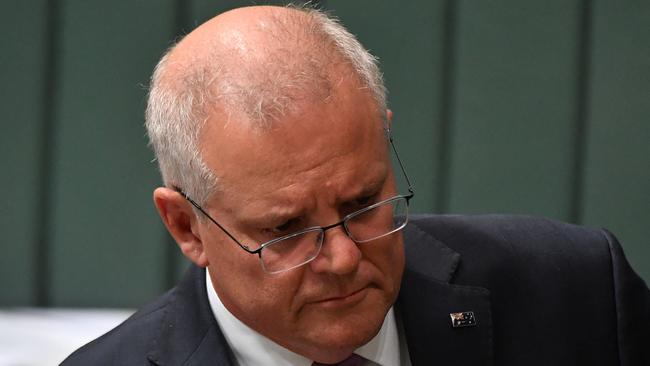
And placards suggesting that because one in five women are, according to some statistics, victims of sexual assault, one in five men are guilty were not just statistically ignorant, but demonising. Any criminologist will tell you that there’s a far smaller number of predators — it’s just that they keep doing the same thing again and again.
Look to the closest thing we have to an official list of practical demands, the Australian Human Rights Commission’s 2020 sexual harassment inquiry, and things don’t get much clearer.
The report, entitled Respect@Work, comes with 55 recommendations.
But take a deep dive and most of them seem designed to amend already existing laws or create new government-funded talking shops (“the Workplace Sexual Harassment Council … be established immediately and funded by the Australian Government,” reads one demand) and do very little by way of practical assistance (only the final seven recommendations deal with “support, advice and advocacy”).
And that’s the problem.
Too many people have decided that the “present moment” as it is so portentously called is about pushing their own barrows, rather than formulating meaningful proposals to tackle to real issues.
Or failing that, just doing their best not to be jerks.
More Coverage
Read related topics:Parliament assault claims





